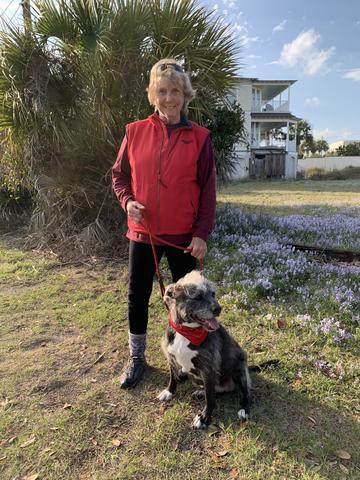With her gift, Pine hopes to encourage future generations of entrepreneurs.
Carol Pine graduated from the journalism school in 1967 and she’s been working ever since. She says that within a week of graduation, she landed a once-classic, professional-journalism-boot-camp role as an editor of two weekly community newspapers. “There I was, this young’un, covering three communities in suburban Minneapolis, as the editor of this paper. And I was enjoying it immensely and learning a great deal on the job. But, as you know, weekly newspaper jobs don’t pay too well, and it dawned on me at one point: I could do better than this. I think I better do better than this.”
By 1973, Pine had hung out her shingle, starting a business as a professional writer. What she lacked in information about income statements and balance sheets she made up for with the belief that “the world, the community, and the marketplace needs well-researched, well-edited, well-crafted messages.”
The library and her CPA father helped with the knowledge gaps and her grit and talent did the rest—she was profitable from the beginning. “What I’ve always appreciated is that I’ve never been out of a job because I have this degree,” Pine said. “I’ve been able to remain in the world of journalism, research, writing—and now writing books, which is what I’ve been up to for quite a long time without abating,” she said. “I graduated in 1967 and I’m still at it! That’s remarkable to me. I don’t know how many schools can prep a person for the work of a lifetime they set out to do.” Still, Pine said she “just learned by doing.”
And she started to write about entrepreneurship, learning all about what it takes to have the courage to start a business. That evolved in to co-writing a regular business column for the vaunted Corporate Report magazine, consulting, writing books, and founding Pine and Partners, which has produced more than 40 books about corporations and the people who lead them. She was working virtually, from home, and without any borders or cubicle walls to box in her ambition long before work-from-home was a regularly recognized term in the industry lexicon.
But she wants future Hubbard School graduates to be able to hang a shingle with more than just a library card and a helpful CPA relative on speed dial—she wants the business side of journalism, broadly defined, to be a part of what students learn about in school, too. That’s why she’s established the Carol Pine Entrepreneurship Fund, which is an estate gift that will go toward supporting programming to instruct and inspire about entrepreneurship for journalism/strategic communication students.
“If we look at a roster of U of M j-school grads, I’m going to guess, a good percentage left the j-school, cut their teeth in the biz, and wound up going out on their own and starting their own venture in some aspect of journalism or communications,” she said.
She may also have a sense for how many entrepreneurial minds have gone through the j-school, since as an adjunct for a class called Media Management—co-taught with Pioneer Press editor legends John Finnegan and Walker Lundy—she may have taught many of them herself. “I used to say, ‘One day you’re going to make your own job. Why not make your own job instead of trying to find one?’ And these days it’s easier than ever.”
After all, she enthuses, what j-school really teaches from the get-go is to research, interview, find the lay of the land, and then present it, either in person or written form. It also may be a more sustainable path forward in an uncertain industry market—both with the changes that came in the workplace after COVID hit and also the wild industry swings, because the programming would help demystify the business side.
“We’re speaking to the entrepreneurial urge of a young person in j-school,” she said. “We’re saying to them, ‘This may be in your future and here are the skillsets you need to have if this is the path you take.’ Plus, the economic reality is becoming really clear: We don’t all have to be a part of expensive organizations that can’t survive.”
Pine’s estate gift will be assessed for its market value and then divvied up appropriately for programming, which is yet to be determined, but she’s got ideas for matching up industry giants with promising young entrepreneurial students, among others. And there’s the fun side, too: Some people just have the entrepreneurial gene and will be more prepared to take the risk.
“Students need to be prepared for the reality and possibility—and give themselves the opportunity—that they may start something and it might grow into something. There are whole new ways of working now that we never imagined, and we should be making the most of it, I think.”
By Katie Dohman
